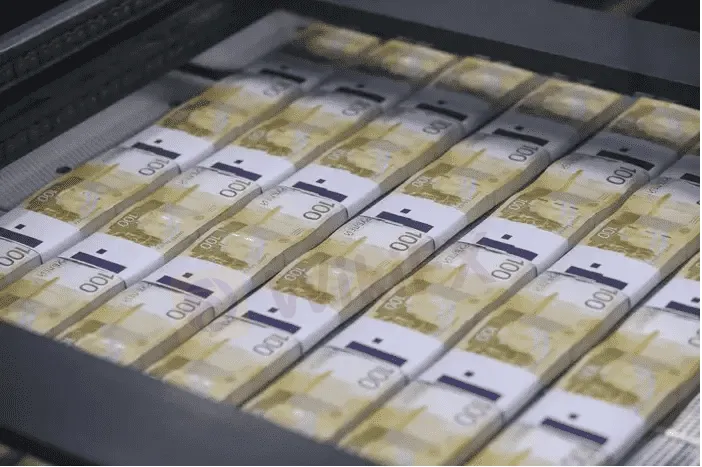简体中文
繁體中文
English
Pусский
日本語
ภาษาไทย
Tiếng Việt
Bahasa Indonesia
Español
हिन्दी
Filippiiniläinen
Français
Deutsch
Português
Türkçe
한국어
العربية
Russian rouble rebounds from more than three-week lows to strengthen
Abstract:The rouble bounced back from more than three-week lows against the dollar and euro in Moscow trade on Monday, supported by strong fundamentals while buffeted by lower oil prices and the end of a favourable month-end tax period.

By 1418 GMT, the rouble was 2% stronger against the dollar at 60.42, having earlier touched 62.4875, its weakest point since July 7. It had gained 1.1% to trade at 61.78 versus the euro.
Analysts noted that the Russian currency retains strong fundamentals. “Demand for foreign currencies from importers and the population is not outweighing supply from exporters,” said Banki.ru analyst Bogdan Zvarich.
High oil prices and a strong current account surplus stemmed some losses last week, but the rouble still lost around 7% to the greenback.
“The rouble weakened steadily due to the end of the tax and dividend period,” said Dmitry Polevoy, head of investment at Locko Invest.
The tax payment period that usually sees exporting firms convert foreign currency revenues to pay local liabilities ended last week.
The central banks decision to cut its key rate to 8% last month and a hint at further possible cuts also reduced the upside pressure on the rouble.
Polevoy said it was quite possible that the rouble could soon weaken temporarily to 63-65 against the dollar.
Speculative swings
A trader at a major Russian bank said the roubles swings on Monday were linked to speculation that the central bank was studying the likelihood of sanctions being imposed against the Moscow Exchange and the halt in exchange trading in the dollar and euro that would cause.
The first reaction to such speculation is to buy foreign currency but demand for forex related to this faded in the afternoon, the trader said.
The central bank said on Friday it was modelling various sanctions scenarios with forex market participants after Forbes Russia had earlier reported that the central bank was discussing a mechanism for managing the rouble-dollar exchange rate should exchange trading be halted in the event of sanctions against the Moscow Exchange and the National Clearing Centre.
The market is also anticipating news that the government will soon tweak and reinstate Russias budget rule that diverts excess oil revenues into its rainy-day fund with a new cut-off price.
The rouble is the world‘s strongest-performing currency so far this year, boosted by measures to shield Russia’s financial system from Western sanctions imposed after Moscow sent troops into Ukraine on Feb. 24.
These include restrictions on Russian households withdrawing foreign currency savings. The central bank extended restrictions on forex cash withdrawals by six months on Monday, in an expected move.
Russian stock indexes were mixed. The dollar-denominated RTS index was up 1.4% to 1,144.8 points, while the rouble-based MOEX Russian index was 0.9% lower at 2,194.8 points.

Disclaimer:
The views in this article only represent the author's personal views, and do not constitute investment advice on this platform. This platform does not guarantee the accuracy, completeness and timeliness of the information in the article, and will not be liable for any loss caused by the use of or reliance on the information in the article.
Read more

CySEC Revokes UFX Broker Licence as Reliantco Halts Global Operations
The Cyprus Securities and Exchange Commission (CySEC) has officially withdrawn the Cyprus Investment Firm (CIF) licence of Reliantco Investment Limited, the operator of UFX.com. This decision followed a six-month period during which the company failed to provide any investment services or perform investment activities.

Elon Musk Sparks Debate Over Presidential Power and Federal Reserve Independence
Elon Musk has voiced his support for the controversial idea that United States presidents should have a role in shaping Federal Reserve policies. This endorsement aligns with recent remarks from President-elect Donald Trump, who has hinted at revisiting the central bank's independence, a long-held tradition in the nation's financial governance.

Consob Sounds Alarm: WhatsApp & Telegram Users Vulnerable to Investment Scams
Italy's financial regulator, Consob, has raised alarms over an increase in fraudulent schemes targeting investors through mobile messaging platforms such as WhatsApp and Telegram.

Crypto 101: Coins vs Tokens
For those new to the world of cryptocurrency, terms like "coin" and "token" may seem interchangeable. However, understanding the distinction between these two digital assets is crucial for navigating the crypto landscape. Both coins and tokens serve as integral components of blockchain ecosystems, yet they differ in their functionalities, use cases, and the technologies underpinning them.
WikiFX Broker
Latest News
Tokyo Police Arrest 4 for Unregistered FX Trading Scheme
BSP Shuts Down Uno Forex Over Serious AML Violations
ACY Securities Expands Global Footprint with South Africa Acquisition
Rupee gains against Euro
WikiEXPO Global Expert Interview: The Future of Financial Regulation and Compliance
DFSA Warns of Fake Loan Approval Scam Using Its Logo
Consob Sounds Alarm: WhatsApp & Telegram Users Vulnerable to Investment Scams
CySEC Revokes UFX Broker Licence as Reliantco Halts Global Operations
Axi Bids AUD 52M to Acquire Low-Cost Broker SelfWealth, Outbidding Competitor Bell Financial
Crypto Influencer's Body Found Months After Kidnapping
Currency Calculator


